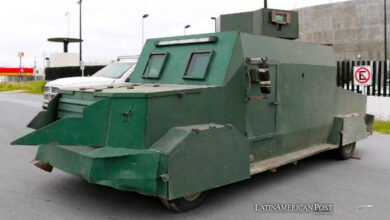A former president and a former economy minister compete to be the winner of the elections in Costa Rica
A former president and a former economy minister compete to be the winner of the elections in Costa Rica

Photo: TW-figuerescr, TW-RodrigoChavesR
LatinAmerican Post | Santiago Gómez Hernández
This weekend, the Costa Rican elections experienced a historic day. Not only were the votes more atomized, but with “extraordinary” abstentionism, according to the Supreme Electoral Tribunal.
In the first presidential round, the winners were José María Figueres Olsen and Rodrigo Chaves. The first, former president (1994-1998) belonging to the National Liberal party (center left), of which former presidents Óscar Arias and Laura Chinchilla are also part.
For his part, Chaves, a career economist at the World Bank, is running for the recently created Social Democratic Progress Party, with a social-democratic tendency. The economist also served as Finance Minister of the current Government between October 2019 and May 2020.
The Figueres and Chaves scandals
However, the candidates who will compete for the head of state have not been free of accusations and scandals. Figueres was accused 30 years ago of murdering a drug trafficker, alias Chemise. This is how the Romero brothers narrated it in their book “The Chemise case”. However, later, the court ordered the perpetrators to pay compensation to the young politician for libel and slander.
It may interest you: The difference between the left of Gabriel Boric and that of Pedro Castillo
For his part, Chaves recently had to resign from the World Bank after the organization’s Administrative Tribunal determined that he sexually harassed two subordinates when he held a high position.
A vote against the current Government
However, the big loser of elections is the current Government of Carlos Alvarado Quesada. Not only because its candidate, Welmer Ramos Gonzáles, had, up to 90% of the count, less than 1% of the votes. The Citizen Action Party also lost all its seats (9) in the National Assembly.
Quesada did not know how to combat a social crisis that aggravated the COVID-19 pandemic and left a nation with 26% poverty, a fiscal crisis, and an increase in informality that hides growing unemployment.
To this is added a corruption scandal of a network of bribes in the construction of highways, the same ones that Alvarado had as flagship works of his legacy.
The importance of Costa Rica’s elections
Costa Rica is one of the main actors in Central American politics. It is the most stable economy in the region and one of the most outstanding in all of Latin America. Its stability makes the nation transcendental in the events of its neighbors. For example, it is clear how in recent years, while Nicaragua, Honduras, or Guatemala have experienced political crises, dictatorships, and coups, Costa Rica is the nation that provides respite to victims of political persecution. Not for nothing, in 2021, Costa Rica received more than 30,000 refugee applications from Nicaraguans.
Likewise, it is one of the destinations of neighboring immigrants, who flee from violence and poverty and find a better future in the United States, Mexico, or Costa Rica.
This is why regional stability is vital for the functioning of Central America. Without a stable Costa Rica, there will be no way to have a truly healthy, democratic Central America with social justice.





